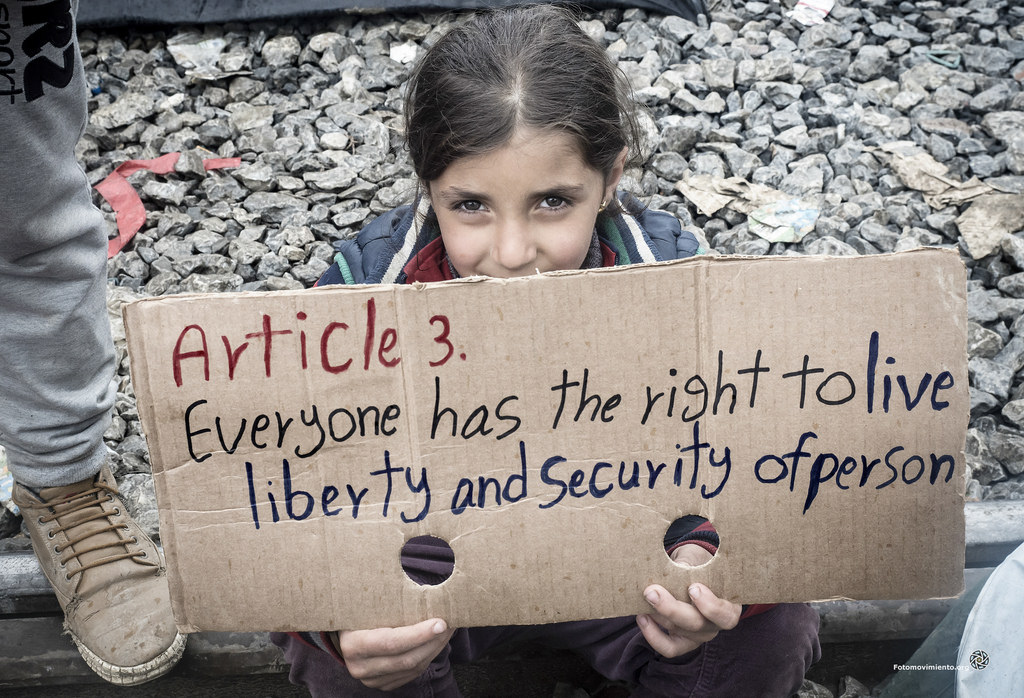“Peace and the essence of peace today”
March 22 War and peace has been a focal issue in all periods of history, writes Abhay Shah, 17, a Correspondent from Siliguri in India. Lessons have been learned, but he argues that humankind must learn how to manage ongoing and new crises that threaten peace.
War and peace has been a focal issue in all periods of history, writes Abhay Shah, 17, a Correspondent from Siliguri in India. Lessons have been learned, but he argues that humankind must learn how to manage ongoing and new crises that threaten peace.
The concern of humankind for peace can be assessed by taking into account the fact that all religions, all religious scriptures and several religious ceremonies are committed to the cause of peace and all these advocate an elimination of war.
The Shanti Path recited by the Hindus, the sermons of Pope and the commands of all the holy scriptures of the Christians, Muslims, Hindus, Sikhs and all other communities hold out a sacred commitment to peace.
Yet the international community fully realised the supreme importance of the virtue of peace against the evil of war only after having suffered the most unfortunate and highly destructive two World Wars in the first half of the 20th century. The blood-soaked shreds of humanity that lay scattered in several hundred battle grounds, particularly on the soils of Hiroshima and Nagasaki, cried for peace, peace and peace on earth.
The human consciousness then rallied in the Charter of the United Nations to affirm: “We the people of the United Nations determined to save succeeding generations from the scourge of war, which twice in our life time has brought untold sorrow to humankind…. and to unite our strength to maintain international peace and security….. have resolved to combine our efforts to accomplish these aims.”
Since 1945, the United Nations and its specialised agencies, several international associations and institutions, international peace movements, global and national level human rights movements and members of the international community have been consistently and strongly advocating the need for the preservation and promotion of peace against war.
In contemporary times, the most urgent and important international objective has been to preserve, protect and defend peace against terrorism and terrorist organisations like Al Qaeda, Taliban, and other enemies of peace.
Nevertheless, since absence of war is the first condition of peace, one of the major concerns of all scholars and statesmen has been to formulate and follow the principles and devices needed for securing this primary objective. The Cold War that kept the world preoccupied during 1945-90 indirectly secured this objective in a negative way by developing a balance of terror in international relations.
While it was successful in preventing a global war, it failed to prevent local wars and in fact gave rise to several tensions, stresses, strains and crises in international relations. The international community had to work very hard at keeping the conflicts and wars limited. It, however, successfully exhibited a welcome and positive ability in the sphere of crisis-management.
The people began focusing their attention on the need for the protection of human rights of all, protection of the environment and securing of a real and meaningful international integration. However, several negative factors, ethnic conflict, ethnic wars, terrorism in its several dimensions, neo-colonialism, hegemony and the like kept on acting as big hindrances.
The need to secure peace by controlling these evils continues to be a primary aim of the international community. Crises have been repeatedly coming and these are bound to keep coming. This makes it very urgent for humankind to prepare for and act in managing crises through collective effort.
Reach me on Twitter https://twitter.com/Abhay_Shah03
photo credit: Fotomovimiento #SAMEworld via photopin (license)
…………………………………………………………………………………………………………………
About me: I am studying at Sacred Heart School, where I have been prefect for two years and am pursuing Human Resource and Management. I enjoy public speaking, and in collaboration with the Rotary Club have formed Interact Club, which sponsors projects health and education projects for underprivileged children. My purpose is not to create people in my own image, but to develop people who can create their own image and move on. I believe in “collaboration and not competition”.
…………………………………………………………………………………………………………………
Opinions expressed in this article are those of the author and do not necessarily represent the views of the Commonwealth Youth Programme. Articles are published in a spirit of dialogue, respect and understanding. If you disagree, why not submit a response?
To learn more about becoming a Commonwealth Correspondent please visit: http://www.yourcommonwealth.org/submit-articles/
…………………………………………………………………………………………………………………
-Abhay Shah




